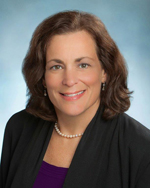By Beth Sirull

SAN DIEGO — Justice, justice, you shall pursue. This instruction from Torah (Parasha Shoftim, Deuteronomy 16:21) is easy to understand, but not always so easy to follow. Yet, in the weeks since the violent deaths of George Floyd and Breonna Taylor at the hands of police officers, many feel a heightened need to seek justice on behalf of the Black community, where injustice has pervaded the American experience for hundreds of years.
Many are asking, “What can I do?” Simply opening a bank account at a Community Development Financial Institution (CDFI) may be one of the easiest ways to help address wealth inequality in your community, with no cost and no risk to you.
Among the many results of four-hundred years of discrimination and injustice toward the Black community is a yawning wealth gap. According to the Brookings Institution, the net worth of a typical American white family was $171,000, nearly ten times greater than that of a Black family, $17,150, in 2016. During the Great Recession, the median net worth of Black families declined by 44%, compared to a 26% decline for white families. The ratio of White family wealth to Black family wealth is higher in 2020, than it was in 2000.
Intergenerational wealth transfers account for more of the racial wealth gap than any other indicator. One generation of White families is wealthier than that generation of Black families. Accordingly, White families leave more wealth to the next generation than Black families. And so on, and so on…
Breaking this cycle, supporting the current generation of Black individuals and families to build wealth is critical to eradicating racism—seeking justice. Building wealth requires access to capital. Home ownership—the biggest source of family wealth in the United States—requires access to mortgages. Growing a business requires investment or a loan.
In an analysis of 31 million mortgage applications, the Center for Investigative Reporting found that Blacks and Latinos were much more likely to be denied mortgages than White Americans, after controlling for other factors including income, loan amount, type of lender and property location. Historically, banks refused to lend to residents of predominantly Black neighborhoods, a system known as redlining. While declared illegal in 1977, the effects of redlining clearly continue.
The twelfth century rabbinic sage, Maimonides, declared that the greatest level of tzedakah—often translated as “charity” but the root of the word translates literally to “justice”—is to help someone find a job or start a business, in other words, to build wealth.
So, what can you do to combat racism and pursue justice? Deposit money in a CDFI. It’s easy and risk-free. And encourage the businesses and nonprofits that you work with to join you.
CDFIs are certified by the US Department of Treasury and are dedicated to delivering responsible, affordable lending and other financial services to help low-income, low-wealth, and other disadvantaged people and communities join the economic mainstream. According to the Urban Institute, between 2011 and 2015, nearly two-thirds of dollars lent by CDFIs went to areas with high unemployment, high poverty and/or majority minority populations. Self-Help Credit Union, one of the oldest CDFIs, operates in seven states; in its 38-year history, over 80% of the loans it made went to low-income borrowers and over 60% to people of color.
But CDFI banks and credit unions rely on depositors like you and me as well as businesses and nonprofits to provide them with the funds to lend out to these communities. Without deposits into the bank, there can be no loans out.
That’s where you come in.
There are approximately 1,100 CDFIs in the country—at least one in every state. Approximately half of these CDFIs are depository institutions—banks, thrifts and credit unions. Funds deposited in these institutions—up to $250,000 per individual depositor–are federally insured, either by the Federal Deposit Insurance Corporation or the National Credit Union Administration. When you have an account at a CDFI bank or credit union, your money is as secure as it would be in a major national bank.
At the Jewish Community Foundation in San Diego, we hold a portion of our operating reserve at the local branch of Self-Help Credit Union. While we earn interest, not only are these funds being lent out to communities of color, they are being invested locally, in San Diego. We get a return on investment—and the knowledge that we are doing the right thing.
With this simple act of opening an account and depositing funds, we are pursing justice. And, by standing up and sharing this act with Jewish and secular agencies across our region, we are furthering this pursuit as others follow our lead.
At the Jewish Community Foundation of San Diego, we have a core belief that guides our actions. We believe in the power of every individual to make a difference and that collectively we can change the world.
Do your part: Find the CDFI bank, thrift or credit union in your area. Open that account. Call on your neighbors and colleagues to do the same.
*
Beth Sirull is president and chief executive officer of the Jewish Community Foundation. There are 95 CFDI’s in California, and at least six listed in San Diego County. These include ACCION San Diego; Bankers’ Small Business CDC of San Diego; Community Housing Works Realty & Lending; Faith Based Federal Credit Union, Oceanside; Neighborhood Bancorp, National City; and Neighborhood National Bank, National City.
Pingback: Afro-Conscious Media » Helping the Black community through your banking